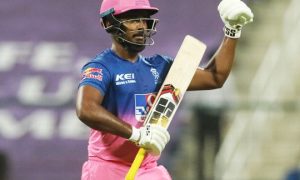If the AAP’s gamble of staking it all on the Congress’s public position on the Ordinance does not pay off, it would not just bring down the index of opposition unity, but also impact the mutual interests of both parties in at least two states as well as heighten the risk of AAP getting isolated
Nearly two weeks after their leaders came face to face at the Opposition meeting in Patna, stalemate continues between the Congress and Aam Aadmi Party over the former dragging its feet on a key demand. Unless the Congress denounces the Centre’s Ordinance assuming control of administrative services in the AAP-ruled national capital, Arvind Kejriwal is unlikely to attend or send any representative to the Bangalore meeting of the Opposition on July 17-18.
Read More: BJP’s Anti-Dalit, Anti-Tribal Face ‘Exposed’: Rahul Gandhi On MP’s Urinating Incident
Adding insult to injury, Congress president Mallikarjun Kharge and senior leader Rahul Gandhi have kept Kejriwal waiting for a meeting despite the Delhi Chief Minister and AAP supremo requesting “an invitation for tea” from the duo.
The leaders of the two parties are likely to share space again on July 19 at the customary all-party meeting before the Monsoon Session of Parliament commences the next day.
THE RAJYA SABHA SUSPENSE
During the Monsoon Session, the Centre is likely to introduce a bill to replace the Government of National Capital Territory of Delhi (Amendment) Ordinance, which effectively nullified the Supreme Court judgement that gave the Delhi government greater legislative and administrative control over “services” matter.
While the bill may see smooth passage in the Lok Sabha, the BJP lacks majority in the Rajya Sabha but has often succeeded in getting enough support from regional parties in the Upper House to pass its legislative agenda. Kejriwal has urged all non-BJP parties to come together to defeat the bill in the Rajya Sabha.
The AAP has 10 MPs in the Rajya Sabha, while the Congress has 31. The tally of other Opposition parties in the Upper House is as follows:
- TMC – 12 MPs
- DMK – 10 MPs
- TRS – 7 MPs
- RJD – 6 MPs
- CPI(M) – 5 MPs
- JD(U) – 5 MPs
- TDP – 1 MP
- NCP – 4 MPs
- Samajwadi Party – 3 MPs
- Shiv Sena-Uddhav Balasaheb Thackeray – 3 MPs
- CPI – 2 MPs
- JMM – 2 MPs
The AAP has already said that without Congress opposing the ordinance and pledging to vote against it in the Rajya Sabha, the party will not attend future Opposition meetings.
“Until the Congress publicly denounces the Black Ordinance and declares that all 31 of its Rajya Sabha MPs will oppose the ordinance, it will be difficult for the AAP to participate in future meetings of like-minded parties where the Congress is a participant. It is becoming increasingly clear that unless the Congress publicly denounces the Delhi ordinance before the next meeting of the opposition parties in Bangalore, the AAP is unlikely go for it,” the party had said in a statement.
THE AAP GAMBLE
Speaking to News18, AAP MP Sanjay Singh said there is no change in the party’s position. “We have already stated our position. It remains the same. Let them make their stand clear,” said Singh, indicating that the ball is now in the Congress court.
If the AAP’s gamble of staking it all on the Congress’s public position on the Ordinance does not pay off, it would not just bring down the index of opposition unity, but also impact the mutual interests of both parties in at least two states as well as heighten the risk of AAP getting isolated. After all, the AAP style of going solo is not unknown to other parties.
In fact, even the CPM, which has consistently supported the AAP thought it was important enough to be mentioned. In a recent edition of its mouthpiece, People’s Democracy, it said: “This move (the Ordinance) has greatly agitated Kejriwal, prompting him to seek the support of opposition parties. Previously, he had maintained a distance from the anti-BJP front or platform”.
Read More: ‘No PM Should be Without Wife’: Lalu Prasad Yadav’s Advise to Rahul Gandhi on Marriage
IMPACT ON ASSEMBLY ELECTIONS
Since June 23, Arvind Kejriwal, along with Punjab Chief Minister Bhagwant Mann, has been kicking off the AAP campaign in poll-bound Rajasthan, Madhya Pradesh and Chhattisgarh, holding maiden rallies in the three states that have, so far, witnessed bipolar contests between the BJP and the Congress. Can the AAP make these elections a triangular contest?
“Not at all,” says Sanjay Kumar of the Centre for the Study of Developing Societies (CSDS), adding that a triangular contest in these states would give the advantage to the BJP.
“I don’t see any sign of any movement if I look at AAP in Rajasthan or in Madhya Pradesh. And these are big states, rural states. In Gujarat, the advantage was that they made an early start and it is far more urban compared to Madhya Pradesh, Rajasthan, Chhattisgarh. That is why I don’t think the AAP is in a similar situation in Madhya Pradesh, Rajasthan or Chhattisgarh as they were in Gujarat,” he adds.
AAP’s fierce campaign in Gujarat last year resulted in five seats and 13% vote share, an impressive showing considering that it is the BJP’s bastion and the home turf of the top two in the NDA government.
According to sources, while the AAP will fight elections in all three states, it will channelise maximum resources and energy in one.
PLAN FOR 2024 GENERAL ELECTIONS
For the 2024 Lok Sabha elections, AAP’s strongholds are Delhi and Punjab, but on 48 Lok Sabha seats an understanding between the AAP and the Congress may pose a challenge to the BJP.
However, just like Delhi and Punjab, AAP has grown in Gujarat and Goa too at the cost of the Congress, which partially explains why the grand old party is not willing to accommodate Kejriwal’s demands. The AAP, could play spoiler for the Congress in closely fought seats.
“The Congress knows that wherever the AAP has expanded, it is all at the cost of the Congress. So the Congress has to take the call one day or the other. It is not only for the future of the Congress that AAP needs to come for the meeting; it is for all Opposition parties,” says Sanjay Kumar.
The other reason why the Congress is reluctant to support the AAP is the number crunch. Sanjay Kumar explains. “Why the Congress is not very keen on appeasing the AAP is because if you look at Gujarat, all 26 parliamentary seats were won by the BJP by more than 50% votes; in Delhi, all seven Lok Sabha seats were won by the BJP by more than 50% of the votes. So, even if AAP and Congress come together, it makes no difference.”
When it comes to Delhi, political analysts believe that unless there is a seat-sharing agreement between the AAP and the Congress, the BJP may get to walk over as it as in the last two elections. With an understanding between the AAP and Congress, there will at least be a fight in the 2024 General Elections in Delhi.
It is in Punjab, where the AAP swept to power winning 92 of 117 Assembly seats, that it has the brightest chance of a good showing in General Elections. A possible straw in the wind is the Jalandhar bypoll in May this year which AAP candidate Sushil Kumar Rinku, a former Congressman, won by defeating Congress’s Karmanjit Kaur in her own stronghold.
However, any overt understanding between the ruling AAP and opposition Congress in Punjab looks difficult as it would mean ceding the opposition space completely to the Akalis and the BJP. Punjab is the only state which has sent MPs from AAP to the Lok Sabha – four in 2014 and one in 2019 which the party lost in bypolls after Bhagwant Mann vacated the seat. Of course, AAP won the Jalandhar bypoll in 2023 and has one MP in the Lok Sabha.
In the 2019 Lok Sabha elections, the Congress had won eight seats, while the Akali Dal and BJP won two apiece.
Not too hopeful of AAP’s prospects or any understanding between AAP and Congress, Sanjay Kumar says: “In Punjab, when it comes to Lok Sabha polls, the Congress is in a dominant position. People voting for AAP in Assembly elections does not mean they will vote for AAP in Lok Sabha elections too. There are numerous examples of the kind — two Assembly elections in Delhi and two Lok Sabha elections in Delhi. People voted for the AAP in Delhi but for the BJP in the Lok Sabha.”
Goa has two Lok Sabha seats. In 2019, the Congress and the BJP won one each and the AAP, in its maiden foray, managed to garner 3.01% of the vote share. “In Goa, out of the two seats, one was won by the BJP by more than 50% votes, says Sanjay Kumar, ruling out any space for the AAP. The latter currently has two MLAs in Goa. It will be difficult for the party to turn the Goa parliamentary elections into a triangular contest.
Of course, the 2024 elections are more than 10 months away and the political climate could change. But if AAP, the newly minted national party and only the third after the Congress and the BJP to have a government in two or more states, does skip the next Opposition meeting in Bengaluru, it will be advantage BJP.





































